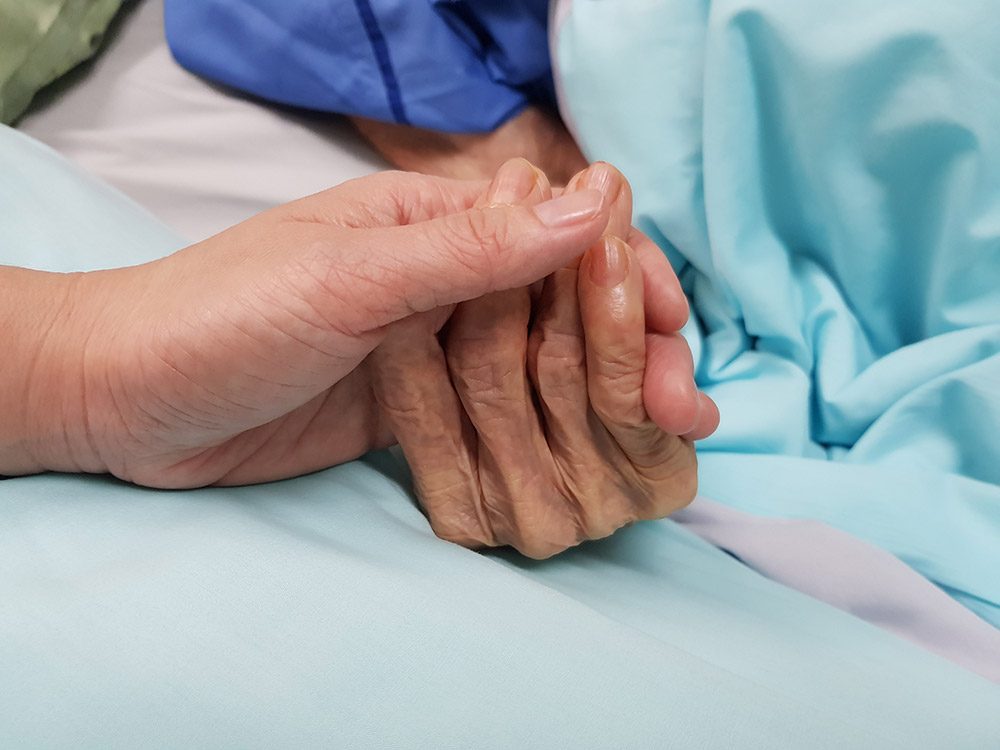THERAPIES OFFERED
“You must find the place inside yourself where nothing is impossible.”
– Deepak Chopra
EMDR THERAPY SERVICES
One Hour EMDR Therapy Sessions
Our first session will involve an assessment, where I learn a bit more about you and you learn a bit more about me. Together we come up with a treatment plan where we will write out clear goals that are attainable. From there we will meet once a week for an hour and work on achieving your goals. At any point throughout this process, if you wish to have an EMDR intensive session, we can schedule that as we go.
EMDR Intensive Sessions
Our first session will involve an assessment, where I learn a bit more about you and you learn a bit more about me. We will create a treatment plan and goals for treatment. From there, we will schedule sessions that last anywhere from 2 hours to 4 hours. The benefit of this method is that you reach your goals sooner and can start living the life you envisioned for yourself sooner.


EMDR THERAPY
You have those funny memories from the past that you share at family events, barbecues with your friends, and with your significant other. Those are not the only memories you have. There are more memories, memories that you don’t share, past experiences you try to stuff down because when you think of them your stomach drops, you get a tightness in your chest, or your whole body feels warm and tense. You find yourself irritable, snappy, and short with the people around you. All of this leads to maladaptive ways to cope such as avoidance, isolation, and over indulgence (work, substances, food, sex, ect). You’ve made several attempts to make changes in your life to get your life back on track and that might include attempts at going to therapy, creating a schedule, increasing healthy habits, but you fall into the same old patterns. This creates a sense of hopelessness, loneliness, shame, and guilt. You want to be better, for yourself and for your loved ones.
Imagine a life where you can connect with yourself without feeling a pit in your stomach, a tightness in your chest, or a warm tense sensation throughout your body. You are no longer trying to avoid yourself and others and you can trust yourself and those around you. You are connected to yourself, your family, your children, and your friends while actually feeling closeness, joy, and love. You are able to be in the present moment, make clear decisions, and follow through with goals, and have a felt sense of accomplishment. You are able to feel the entire spectrum of emotions, including the positive ones instead of only the painful ones. Through the therapy process, you will uncover those positive characteristics that make you you, and do away with the characteristics that are not serving you.
We believe that trauma is at the core of pain and suffering. With a gentle and empathetic approach to treatment, we help guide you to a healthier version of you. We specialize in the treatment of trauma and we are trained in Eye Movement Desensitization and Reprocessing (EMDR) therapy. We offer one hour EMDR therapy sessions as well as EMDR Intensive sessions.


KETAMINE-ASSISTED PSYCHOTHERAPY
What is Ketamine-Assisted Psychotherapy (KAP)?
Ketamine-Assisted Psychotherapy (KAP) is a profound and transformative healing journey that integrates the spiritual, emotional, and psychological realms. At its core, KAP uses the sacred potential of ketamine, a medicine known for its ability to facilitate deep states of consciousness, in combination with the compassionate guidance of psychotherapy.
Ketamine, originally used as an anesthetic, has revealed its ability to lift the veil between the conscious and subconscious, allowing for deep emotional release and spiritual awakening. In low, therapeutic doses, ketamine helps to dissolve the ego’s grip, creating space for inner exploration, connection with higher consciousness, and the healing of past traumas, depression, anxiety, PTSD, and more.
By enhancing neuroplasticity—the brain’s ability to forge new, harmonious pathways—ketamine opens the mind and heart to a higher state of being. The dissociative state it creates is not just a psychological experience but a sacred space, mirroring the essence of ancient spiritual practices, where one can access deeper truths, clarity, and personal transformation.
KAP invites individuals to go beyond surface-level healing, unlocking a path to wholeness, self-discovery, and spiritual growth.
Why Choose Ketamine-Assisted Psychotherapy (KAP)?
KAP is more than just a treatment—it is a gateway to deep, spiritual healing and transformation. As traditional mental health approaches evolve, KAP stands at the forefront of holistic wellness, offering a sacred, science-supported path for those seeking to overcome emotional pain and reconnect with their higher selves.
KAP combines the wisdom of cutting-edge medicine with the soulful depth of therapeutic exploration, creating a space where true healing unfolds. It goes beyond merely relieving symptoms; it invites personal transformation by opening the heart, mind, and spirit to profound insights and inner peace.
Choosing KAP is choosing a journey into self-awareness, spiritual growth, and lasting change. It speaks to the soul’s desire for wholeness, offering rapid relief and a deeper connection to one’s true essence. Through the healing potential of KAP, you can communicate a message of hope, renewal, and the boundless possibilities of a more awakened and harmonious life.
Benefits of Individual Ketamine-Assisted Psychotherapy (KAP)
Benefits of Individual Ketamine-Assisted Psychotherapy (KAP)
Ketamine-Assisted Psychotherapy (KAP) offers a scientifically supported, innovative treatment for individuals seeking effective, rapid relief from mental health conditions. By leveraging ketamine’s unique neurobiological effects in combination with psychotherapy, KAP provides both immediate symptom relief and long-term therapeutic benefits. With growing clinical evidence supporting its efficacy in treating mood disorders, PTSD, and anxiety, KAP represents a powerful tool in the mental health treatment landscape. The following outlines the key clinical benefits of KAP, supported by emerging research and data.
Rapid Symptom Relief
Research shows that ketamine produces rapid antidepressant effects, often within hours to days, in contrast to traditional antidepressants that can take weeks to take effect. A 2017 meta-analysis of 24 clinical studies found that ketamine significantly reduced depressive symptoms within 24 hours in patients with treatment-resistant depression (TRD) (Coyle & Laws, 2015). This makes KAP particularly beneficial for individuals seeking quick relief from severe mood disorders.
Effective for Treatment-Resistant Conditions
Ketamine has shown effectiveness in treating conditions that are often resistant to conventional treatments, such as major depressive disorder (MDD), post-traumatic stress disorder (PTSD), and anxiety disorders. For those with PTSD, a study in JAMA Psychiatry (2020) indicated that ketamine significantly reduced symptoms, providing a critical therapeutic option for patients who have not responded to other treatments.
Promotion of Neuroplasticity
One of ketamine’s key mechanisms is its ability to promote neuroplasticity—the brain’s ability to form new neural connections. This is particularly relevant for patients with mood disorders, where entrenched negative thought patterns can perpetuate symptoms. A study in Nature (2018) showed that ketamine enhances synaptogenesis (the formation of new synapses) in areas of the brain associated with mood regulation, such as the prefrontal cortex. This neuroplastic effect helps rewire the brain, making it easier for patients to adopt healthier cognitive and emotional patterns.
Breaking Cognitive and Emotional Barriers
Ketamine’s impact on brain circuits allows it to help individuals break through cognitive and emotional barriers that often prevent effective therapeutic progress. According to a study in Biological Psychiatry (2016), ketamine can disrupt maladaptive neural circuits associated with depression and anxiety, enabling patients to engage in therapy more effectively. This disruption allows for the reprocessing of traumatic memories and shifts in longstanding negative thought patterns.
Reduction in Anxiety and Stress
Studies have shown that ketamine has potent anxiolytic (anxiety-reducing) effects. In a clinical trial published in Journal of Psychopharmacology (2014), a single ketamine infusion resulted in a rapid reduction of anxiety symptoms in patients with generalized anxiety disorder. The calming effect of ketamine enables patients to process traumatic experiences and anxiety-inducing memories more effectively during psychotherapy, creating a safer and more productive therapeutic environment.
Enhanced Emotional Processing
Ketamine’s dissociative effects allow patients to access altered states of consciousness, which research suggests can facilitate emotional breakthroughs. A study published in The American Journal of Psychiatry found that ketamine induces a brain state that enhances emotional processing and increases emotional openness (Feder et al., 2014). This leads to deeper exploration of unresolved trauma and emotional blocks during psychotherapy, helping patients gain new perspectives on their struggles.
Deepened Therapeutic Experience
Ketamine’s ability to induce altered states of consciousness enhances the psychotherapeutic process by allowing patients to access deeper layers of their psyche. Research indicates that patients undergoing KAP often report significant improvements in self-awareness and emotional clarity. A study in Frontiers in Psychology (2019) demonstrated that the altered state induced by ketamine can provide profound insights and promote the processing of difficult emotional material, leading to more meaningful therapeutic sessions.
Personalized, Targeted Treatment
KAP is highly individualized, with ketamine dosing tailored to each patient’s specific needs and therapeutic goals. This personalized approach is supported by clinical guidelines that emphasize the importance of individualized care in optimizing ketamine’s therapeutic effects. Studies have shown that tailored ketamine protocols improve outcomes in both acute and long-term treatment of mood disorders (Zarate et al., 2006).
Sustained Long-Term Benefits
Evidence suggests that the benefits of KAP are not only immediate but also long-lasting. A study in The Journal of Clinical Psychiatry (2017) found that patients who received ketamine experienced sustained improvement in mood and cognitive function for up to several weeks after treatment. This lasting effect, particularly when combined with psychotherapy, increases the likelihood of sustained recovery and ongoing mental health improvement.
Benefits of Group Ketamine-Assisted Psychotherapy
Deep Healing
KAP goes beyond symptom management. Ketamine can help unlock difficult emotions and traumas, allowing for deeper healing and long-lasting positive changes in mental and physical well-being.
Accelerated Therapeutic Progress
Ketamine enhances neuroplasticity, helping the brain form new, positive pathways more efficiently. In a group setting, participants gain additional insights from hearing others’ breakthroughs, speeding up individual progress and boosting overall outcomes.
Suitable for Treatment-Resistant Conditions
KAP has shown great promise for people suffering from Treatment-Resistant Depression (TRD), PTSD, OCD, and substance use disorders—conditions that may not have responded to traditional therapies or medications.
Enhanced Healing Through Shared Experience
Group settings foster a sense of connection and community, allowing participants to share their journeys in a safe, supportive space. This collective experience can deepen emotional healing and create meaningful bonds with others who understand similar struggles.
Strengthened Therapeutic Integration
Group discussions following ketamine sessions provide a unique opportunity for individuals to integrate their experiences in real-time, with input from both peers and skilled facilitators. This reinforces the lessons learned during the session and promotes lasting change.
Reduction in Isolation
Mental health challenges like depression, PTSD, or addiction can feel isolating. Group ketamine therapy helps participants feel less alone by connecting with others on similar journeys. This sense of belonging can enhance motivation and resilience.
Professional Facilitation
Each session is led by experienced therapists, ensuring that both the ketamine experience and the group dynamic are skillfully guided to maximize therapeutic value. Group ketamine-assisted psychotherapy combines the powerful effects of ketamine with the healing power of community, offering a unique and transformative path to mental and physical wellness.
What can I expect from my Group Ketamine Assisted Therapy at True North Healing Center?
A Mental Health assessment at TNHC to explore fit for KAP work
A Medication Management with Rebecca LaFrance, PMHNP at Align Counseling PLLC to determine the appropriateness for KAP and dose of ketamine
- Route of administration will be oral Ketamine in the form of liquid ketamine or troche
A preparation call as a group to connect with facilitators & other group members, set intentions, and ask questions
Ketamine Medicine Journey/Ceremony
- Opening Ceremony facilitated by experienced ketamine assisted therapy facilitators
- Individual intention setting/journaling
- Group intention setting
- Medicine Journey guided by music to enhance inner exploration & healing
- Beginning of integration individually
- Beginning of group integration
- Closing Ceremony
Group Integration Call
Ongoing offerings of integration through individual therapy


WALK & TALK THERAPY
Imagine your feet beneath your body as you move through a clear path ahead, walking underneath the umbrella of green trees, surrounded by green space, and breathing in the fresh New Hampshire air. Walking the path with you, is your therapist, helping you navigate some of the challenges you face in your life. You are feeling the mental benefits of therapy and the physical benefits of movement. For the first time in a long time, you are feeling well again.
People often think that therapy must be contained to the walls of an office.This is one way to participate in therapy, but it is not the only way. While containment can feel safe and comforting to some, others may feel uncomfortable sitting directly across from a therapist. In cases like this, your therapist might suggest leaving the office to conduct the therapy sessions outside. Incorporating movement like walking, can reduce stress and allow you to reach your therapeutic goals.
Some of the benefits of Walk and Talk Therapy include a reduction in cortisol levels, positive rapport building, metaphors related to the outdoors and moving forward, and a promotion of creative thinking. Some people report feeling more comfortable with their therapist, feeling motivated outside of session to continue walking, and developing a sense of importance for being outside. Walk and Talk Therapy has the potential to assist you with your therapeutic process while also promoting overall wellness in your life.
If being in nature during a therapy session appeals to you, it can look and feel different than a traditional office setting. A destination will be chosen ahead of time, such as a park or a walking/bike path, where you can meet your therapist for your session. Your therapist will guide the outdoor experience and allow you to explore challenging topics while quite literally moving forward. For more information or to connect with a therapist, please complete the contact form below or call 603 696 4872.

END OF LIFE DOULA SERVICES
Logistics and Support: Planning for the end of life (advanced directives, wills, funerals/celebrations) understanding diagnosis (timelines, how the diagnosis may play out, seeking treatments/services to minimize suffering or prolong life as meets the needs of the client, working as part of a care team to ensure the wishes of the dying person are respected in their medical care. Referrals are provided to doctors, APRNs, and attorneys as necessary.
Emotional Support for the dying and their loved ones/Primary Care Givers: Providing emotional support, facilitating conversations, and preparing the individual – often alongside the family for the experience. Facilitating conversations surrounding mortality (at any time) for individuals. Emotional support for caregivers continues up to 90 days after the passing of the individual. This time is used to reflect on relationships and design healing goals moving forward. Referring to therapy and providers as necessary.
Spiritual Support Providing facilitation of rituals, and connecting the dying and their family with practitioners of their faith or spiritual practice. Referrals and connections are provided with priests, rabbis, imams, and other practitioners as necessary.
Legacy Projects: Aiding the dying person in envisioning and implementing a project(s) that represent how they’d like to be remembered or how they’d like to leave a lasting impression on their family or community.
Designing the Space: Providing assistance in designing the space(s) in which the individual will feel most at ease in their final days.

Hello! I’m Alex
End of Life Dula
I was born and raised in Washington State where I developed a love of the outdoors, and the myriad healing opportunities they afford. Through my service in a variety of non-profit organizations providing services including Search and Rescue and community outreach with the homeless population, I had the opportunity to immerse myself in the suffering and joy of the human experience.
After serving in the US Army, I moved to New Hampshire where I have continued to engage in the operations and support of healing services including therapy, affordable housing, and homelessness. Through my challenges with chronic illness I had to confront my own suffering and mortality; through the hardest days, my passion was ignited to do whatever I can to ease the suffering of those around me. I dove head first into trying to understand one of the hardest challenges we must all face, our final journey. As we near the end of our lives, many of us find ourselves overwhelmed, distanced from those we love, and worried about their future. As an End of Life Doula, my role is to facilitate communication, planning, and support; to walk side-by-side in suffering, hope, and healing.
CONTACT US
Request an appointment below.
Please note: If you are experiencing a medical emergency, please call 911. If you are experiencing a mental health crisis, please call your local community mental health crisis line. Mental Health Center Greater Manchester crisis line is (800) 688 3544.
Please note: This form is not HIPAA protected, so please keep that in mind when filling out the comment section. We are typically able to respond to requests within 3-4 business days during the business week.
